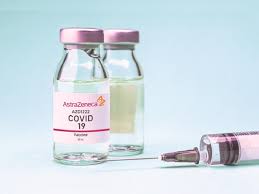AstraZeneca withdraws vaccine: No need to panic
Ten days after AstraZeneca admitted side effects of its Covid vaccine in rare cases, the company has withdrawn the shots, renamed Vaxzveria in 2021, from the global market. It has cited a “surplus of available updated vaccines” that target new variants of the virus as the reason for its decision. The vaccine major’s moves have generated negative sentiments bordering on panic, including among some people in India where AstraZeneca partnered with the Serum Institute of India to develop Covishield — the bulwark of the country’s fight against Covid. Such responses might not be surprising given that social media is the prime source of information for a sizable section and the means to distinguish science from pseudoscience are not always at hand. But knee-jerk reactions from other quarters have also not helped. Especially unfortunate are the politically loaded comments about Covishield during the Lok Sabha election campaigns.
The emergency created by an unknown contagion required due procedures — including clinical trials — and schedules to be compressed. But the crisis also galvanised scientists, medical experts and policymakers to push the frontiers of their disciplines and domains. Vaccine hesitancy tested the persuasion skills of local officials and healthcare workers. It’s a testimony to such initiatives that social and economic activities return to normalcy about two years after the virus unleashed its virulence. Vaccination ensured that the contagion took on a significantly less aggressive form after the lethal second wave in the summer of 2021 — when the bulk of the country’s population had not received the shots. Hospitalisation and fatality rates remained low even during periods of spike in infection after the second wave.
Covid inoculation drives are now subjects of intensive research. That’s how it should be. These studies help generate nuanced information about the safety and efficacy of the vaccines, that could not have been generated with the volunteer size of the trials. Scientists can today draw on databases that comprise inoculated people across nations and continents. Besides helping epidemiologists understand how the jabs work on diverse sections of people, and reaffirming the potency of the shots, such studies shine the light on rare adverse reactions, including thrombosis and thrombocytopenia Syndrome (TTS) — blood clots and low levels of platelets — associated with the AstraZeneca vaccine. Such research will help vaccine developers refine their methods. Technologies used in the Covid jabs — whether the viral vector of AstraZeneca or the mRNA technique of some other developers — are part of a larger battle against infectious diseases. Alarmist reactions against the Covid jabs could raise the head of vaccine hesitancy and hurt the fight against other contagions.
